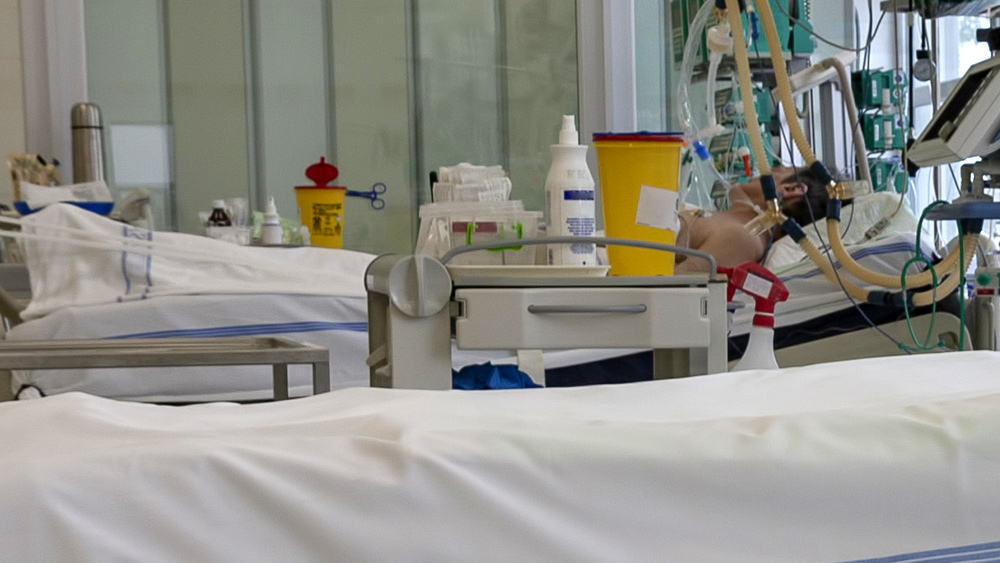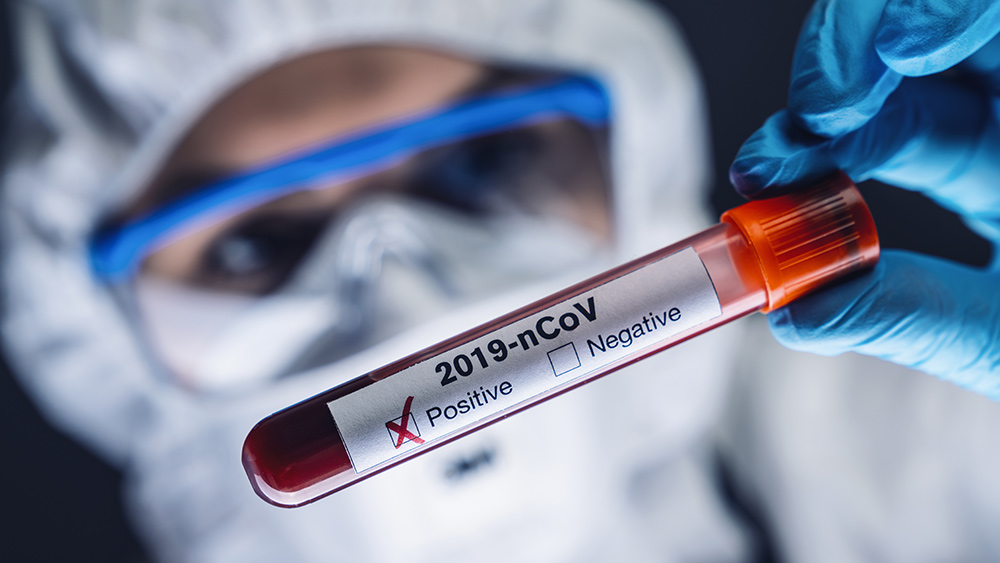UK hospital denied intensive care treatment to over half its coronavirus patients
08/10/2020 / By Ralph Flores

“First, do no harm” is the most iconic – if not, the most important – maxim in the medical profession. But a leading hospital in London not only failed to uphold these principles, but it also imposed treatment limitations on over half of its COVID-19 patients at the height of the pandemic.
King’s College Hospital, one of the largest teaching hospitals in London, had do-not-resuscitate orders in place for COVID-19 patients, reports the Daily Mail, and even barred them from receiving intensive care treatment. The report revealed that only 18 percent of patients, or less than one in five people, were admitted to King’s intensive care unit. Even worse, a total of 61 percent of COVID-19 patients admitted to King’s had treatment limitations placed on them. This meant that over half of patients admitted to hospital for COVID-19 did not have access to potentially life-saving treatments.
Experts are concerned that COVID-19 patients – in particular, the elderly and high-risk populations – were forced to agree with do-not-resuscitate orders. If a do-not-resuscitate order is in place, healthcare providers will not perform cardiopulmonary resuscitation (CPR) if a patient’s heart stops beating or his breathing stops. Unlike in the U.S., where doctors make do-not-resuscitate orders after consulting with their patients, clinicians in the U.K. can sign the do-not-resuscitate order without needing to consult with the patient.
Aside from do-not-resuscitate orders, doctors can also use treatment escalation plans (TEPs) to limit life-saving treatments for the elderly and frail, as well as those with chronic illnesses like cancer and stroke. A patient who agrees to a TEP waives his right to be put in intensive care, which includes any life support if ever any of their organs failed.
The findings presented by the report were harrowing: TEPs were used in nearly 80 percent of patients in COVID-19 wards, which prevented them from receiving intensive care treatments. In addition, around 86 percent of COVID-19 patients were made to agree to do-not-resuscitate orders. (Related: The COVID-19 panic shows us why science needs skeptics.)
Hospitals provided palliative care instead of treatment
Doctors say that treating COVID-19 isn’t just challenging, it’s also expensive. Patients with severe symptoms of COVID-19 not only need ventilators, but they also require kidney dialysis and specialized drug support, especially if they have multiple organ failure. The procedure can cost anywhere upwards of £1,500 a day in an ICU, compared to £200 in a regular ward.
The King’s report also gave a distressing account of how the hospital handled admissions of critically ill patients at the height of the pandemic. In particular, the hospital admitted nine patients to intensive care and sent 41 to regular wards.
In a statement, the National Health Service’s critical care department noted that TEPs were placed in 61 percent of all COVID-19 patients admitted to the hospital.
“The majority – more than 80 percent – involved TEPs and DNR orders. Two-thirds of patients with a TEP were considered frail. Patients were given pain relief to keep them comfortable as an alternative to active treatment so palliative care faced a dramatic increase in ward referrals,” the statement read.
The report looked at a total of 429 patients admitted to King’s, with ages ranging from 18 to over 90 years. From the total, 353 patients – or 82 percent – were treated only in COVID-19 wards and 76 were sent to the ICU.
To note, the mortality rate of those in COVID-19 wards was at 26 percent, compared to 34 percent for those in intensive care. Most patients who were admitted had at least a chronic disease – either high blood pressure or diabetes.
In response to the report, Andrew Goddard, president of the Royal College of Physicians, stressed that resuscitation isn’t always the most appropriate approach to patient care, especially in cases where they would not survive.
“Evidence suggests that survival from CPR in patients whose hearts stop due to Covid-19 occurs in less than 1 percent,” he added. “The key point that must drive every clinical decision, regardless of the pandemic, is that we must be sensitive to patients’ needs and recognize that in considering such issues patients – usually in discussion with their loved ones – need time, space and support to consider the options.”
The U.K. currently has over 304,000 confirmed cases of COVID-19, with over 46,000 deaths, according to data from Johns Hopkins University.
Pandemic.news has more on the ongoing Wuhan coronavirus outbreak.
Sources include:
Tagged Under: coronavirus, deaths, healthcare, hospital, Hospitals, ICU, NIH, outbreak, pandemic, patient care, UK
RECENT NEWS & ARTICLES
Pandemic.News is a fact-based public education website published by Pandemic News Features, LLC.
All content copyright © 2018 by Pandemic News Features, LLC.
Contact Us with Tips or Corrections
All trademarks, registered trademarks and servicemarks mentioned on this site are the property of their respective owners.





















